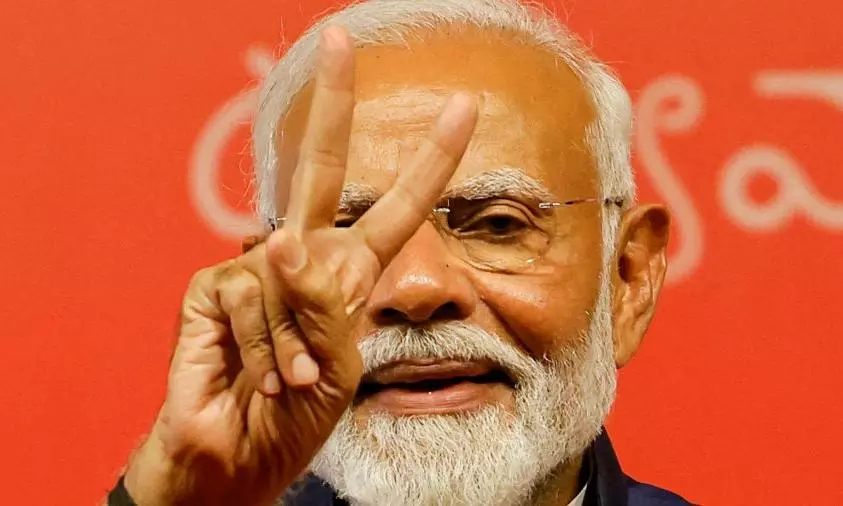
Japanese media blames India’s misguided policy for strained ties with neighbours
text_fieldsA recent report by Japanese media outlet Nikkei Asia has raised concerns over India’s foreign policy, suggesting that the country is increasingly isolating itself within South Asia. The analysis claims that diplomatic strategies implemented under Prime Minister Narendra Modi’s government have backfired, resulting in a lack of allies in the region.
The report specifically points to deteriorating relations with key South Asian nations, including Nepal, Bangladesh, and Sri Lanka—countries that historically maintained close ties with India. Tensions between India and its neighbours have reportedly been exacerbated by a mix of internal political dynamics, mismanagement of regional partnerships, and India’s perceived alignment with global powers such as the United States and Japan.
One of the report's focal points is the declining relationship between India and Nepal. According to Nikkei, India’s heavy-handed approach during Nepal’s constitutional crisis in 2015, coupled with a blockade of essential supplies, has left a lasting negative impact on bilateral relations. In response to perceived neglect, Nepal has sought closer ties with China, prompting concerns within the Indian government.
In Bangladesh, the controversial Citizenship Amendment Act (CAA) and the National Register of Citizens (NRC) in Assam have led to growing distrust towards India. Many Bangladeshis view these policies as direct attacks on their population, which has created friction despite a long history of cooperation in trade, infrastructure, and security matters. The Nikkei article highlights that Dhaka is now looking to diversify its partnerships, with China emerging as a significant alternative.
India's relationship with Sri Lanka has also come under scrutiny. While India has provided financial assistance to help Sri Lanka navigate its recent economic crisis, the increasing Chinese influence on the island nation, especially through investments in key infrastructure projects, has undermined India’s traditional clout.
The Maldives, too, presents a challenge for India, as China’s expanding footprint diminishes India’s influence. Although India has made efforts to rebuild its standing in the region through initiatives like the “Neighborhood First” policy, Nikkei notes that these efforts have yet to yield significant results.
Nikkei Asia posits that China has adeptly capitalised on India’s strained relations with its neighbours by making strategic investments and forming new partnerships across South Asia. China’s Belt and Road Initiative (BRI) plays a pivotal role in extending its influence, evidenced by large infrastructure projects in Pakistan and Sri Lanka, as well as growing trade ties with Bangladesh and Nepal.
The report argues that India’s failure to counter China's expanding presence in the region is due to miscalculations in its foreign policy, with New Delhi prioritising global partnerships at the expense of regional diplomacy. By focusing on its ties with the U.S., Japan, and Australia through the Quad alliance, India has inadvertently weakened its position within South Asia, the report claims.
The Nikkei report concludes with a call for India to recalibrate its foreign policy and restore relations with its South Asian neighbours. It advocates for a more balanced and inclusive approach to regional diplomacy, suggesting that efforts to counter China’s growing influence are essential for India to reclaim its status as a regional leader.























